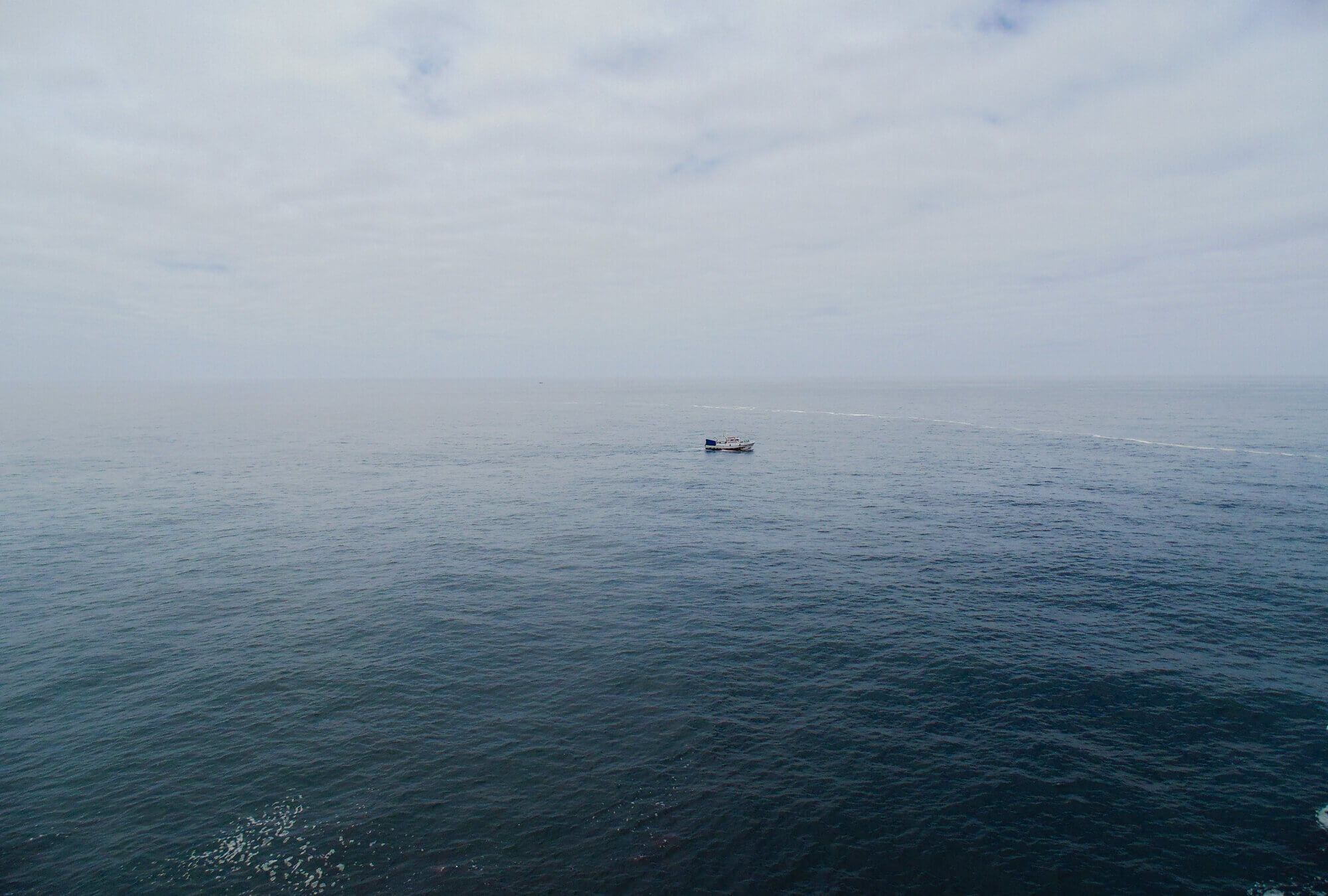Is it time to mourn the passengers aboard the lost submersible?
What does Jewish tradition tell us about grieving missing persons?

The Coast Guard has already searched a Connecticut-sized area on the the surface of the ocean — but visibility is bad and the submersible could have floated far. Courtesy of iStock
The Titan, the Titanic-exploration submersible that lost contact with its mothership on Sunday, is in a strange position. Perhaps it’s safely floating on the surface of the Atlantic, waiting for the U.S. Coast Guard’s search team to stumble upon it. Or it’s 2 miles beneath the surface of the sea, stuck on the same wreckage it was diving to explore. Or maybe its hull was breached, and the ship was crushed.
It’s a strange, liminal space for those watching events unfold from land. Should we mourn it as a tragedy, or wait until we know for sure — and will we ever?
Thanks to all sorts of technical advances in communications and tracking, it’s hard to disappear today. But in the era of the Talmudic rabbis, it was fairly common. Bodies were lost in war or in ships at sea, leaving wives unsure if their husbands were dead or if they’d make their way home someday.
Which is why Jewish tradition actually has a lot to offer on the Titan’s situation. And generally, the prevailing rule is that the missing person is alive until proven dead. In other words: Maintain hope.
The Shulchan Aruch, a codification of Jewish Law, has all sorts of rules and guidelines for how to prove that someone is dead. If there are eyewitness accounts, they are to be recounted to a beit din, or rabbinic court, to be assessed for their veracity. If there are no witnesses, but there are reports of death, the family can begin the shiva when they have given up on finding a body — basically, when they’ve lost hope. Which means if someone is still hoping, they don’t need to mourn. In fact, Jewish tradition discourages it.
This can put the families of missing persons in a difficult position. It’s hard to gain closure if you never mourn, and maintain the belief that someone might return. Even if there’s a chance someone might not be dead, it’s hard to deal with the endless uncertainty.
Mercifully, in the case of the Titan, we will likely have answers in a few days. While there is technically no eyewitness, ships are en route to the site with robots that can explore the ocean floor to locate the submersible. And if they can’t find it, we know the submersible will run out of oxygen on Thursday at the latest, even if it’s on the surface; it requires outside assistance to unseal.
Still, without finding the craft, there’s space to imagine hopeful — if extremely unlikely — scenarios. For example, it might beach somewhere and allow the passengers to escape. Without definite proof of death, there’s always an ability to construct an optimistic dream.
But that’s optional. After Thursday, if the Titan remains missing, those who wish to mourn can begin. But until then, according to Jewish tradition, we should remain hopeful. There’s always a chance the Coast Guard will find the ship floating on the surface, and free its passengers. And if there’s a chance, Jewish tradition encourages us to do our best to believe in it.

















